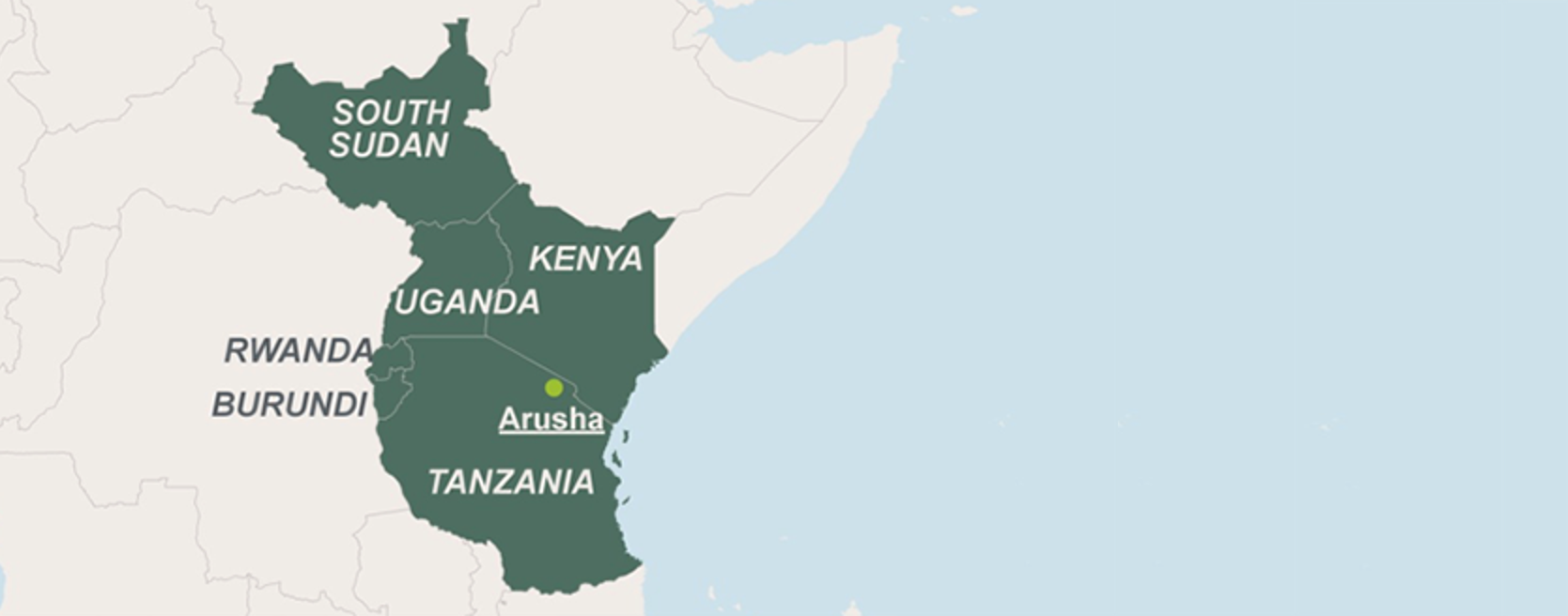The Director General of the OIE, Dr Monique Eloit and the Secretary General of the East African Community (EAC), H.E. Ambassador Liberat Mfumukeko recently signed a Memorandum of Understanding (MoU), which has now officially been released.
The EAC is a regional intergovernmental organisation of 6 member states (called “Partner States”) : the Republics of Burundi, Kenya, Rwanda, South Sudan, the United Republic of Tanzania, and the Republic of Uganda, with its headquarters in Arusha, Tanzania.
The EAC is home to 172 million citizens, represents a land area of 2.5 million km² and generates a combined Gross Domestic Product of USD 172 billion (in 2017).
The work of the EAC is guided by its Treaty which established the Community. It was signed on 30 November 1999 and entered into force on 7 July 2000 following its ratification by the original three Partner States – Kenya, Tanzania and Uganda. The Republic of Rwanda and the Republic of Burundi acceded to the EAC Treaty on 18 June 2007 and became full Members of the Community with effect from 1 July 2007. The Republic of South Sudan acceded to the Treaty on 15 April 2016 and became a full Member on 15 August 2016.
The Memorandum of Understanding signed with the OIE stresses the EAC objectives to enhance food security and rational agricultural and livestock production, the need to control of animal and plant pests, vectors and diseases and to implement programmes to prevent and manage outbreaks of epidemic and other diseases in order to improve the general hygiene and health of its the people.
In pursuing these objectives the OIE and the EAC have agreed to cooperate in the following areas :
- Harmonisation of animal health, and welfare, legislation and regulations, in compliance with the OIE Terrestrial and Aquatic Animal Health standards (Codes and Manuals);
- Harmonisation of procedures for registration and control of veterinary medicines, including vaccines;
- Active contribution, by EAC Partner States, to the standard setting activities under the World Trade Organization (WTO) Agreement on the Application of Sanitary and Phyto-sanitary (SPS) Measures (as applicable to animals and animal products);
- Active contribution, by EAC Partner States, to the standard setting activities under the OIE;
- Coordination and harmonisation of control of Transboundary Animal Diseases (TADs) and Zoonoses, fostering a “One Health” approach to the management of diseases at the animal – human – ecosystem interface, including the mitigation of antimicrobial resistance;
- Active contribution, by EAC Partner States, to the ongoing global disease control, elimination and eradication initiatives (foot-and-mouth disease, rabies and peste des petits ruminants, respectively);
- Active contribution, by OIE, to the ongoing EAC initiatives on national and regional pandemic preparedness (for zoonotic diseases);
- Design and implementation of epidemiological surveillance, disease reporting and animal health information systems;
- Development of regional guidelines for trade in animals and animal products;
- Understanding and managing the effects of environment and climate change on animal health and welfare;
- Development of initiatives aimed at elucidating the interactions between livestock production, animal health, greenhouse gas emissions, climate change, vector distribution and the environment;
- Supporting existing OIE Reference Laboratories and Collaborating Centres in the EAC and support twinning agreements to increase the number of OIE Reference Laboratories and Collaborating Centres in the region;
- Preparation of the relevant applications by EAC Partner States, for official recognition by the OIE of freedom from specific diseases at national or zonal level, with or without vaccination, in order to facilitate regional and international market access for animals and animal products;
- Further strengthening of the Veterinary Services of EAC Partner States, based on outcomes of OIE PVS Pathway missions, focusing on public veterinary authorities, other competent authorities, the private sector, as well as veterinary educational establishments (including for the training of veterinary para-professionals) and veterinary statutory bodies in the region.
The MoU has come into force in July 2019 and will run for an initial period of four years, i.e. until June 2023, after which it may be renewed. On OIE side, the MoU implementation will be managed from the OIE Nairobi office (OIE Sub-Regional Representation for Eastern Africa).






